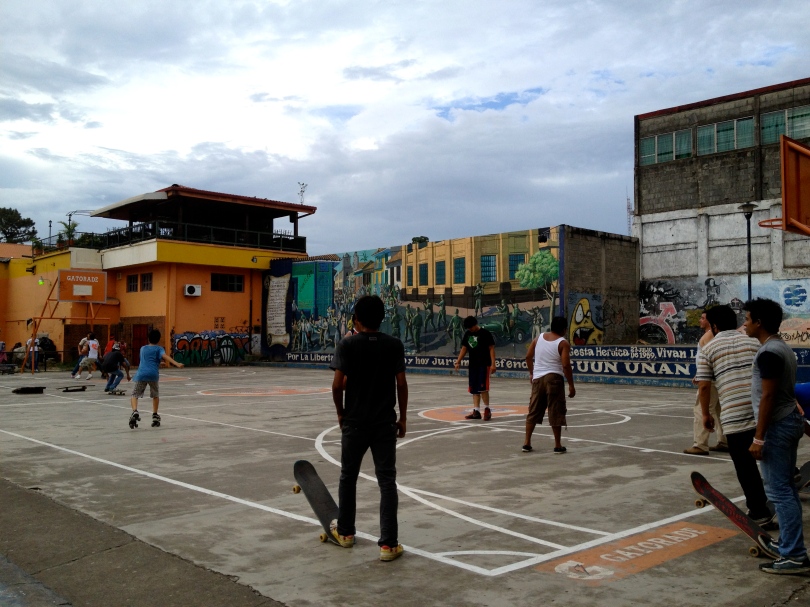“Tom Brady? Teddy Bruschi? The Patriots, right?” These were not the questions I expected to be asked at the small, humid border crossing between Guatemala and El Salvador. And yet here stood the imposing guard, looking much like the former NFL linebacker himself, glancing at my American passport and rattling off football names like a New England native.
Immediately all of my preconceived notions of the country shifted. In 2011 El Salvador had one of the highest per capita murder rates in the world; two of the most notorious international gangs run out of the country, and the US Department of State warns travelers of violent extortion and kidnapping rings operating out of several prisons. When planning a trip to Central America this summer, you might understand why El Salvador did not top my list of countries to visit; I definitely didn’t expect a welcome into the country that included inquiries about my local American sports teams.
After a semester interning at Sport in Society, I shouldn’t have been so surprised. As a program that recognizes the power of sports and the “extent to which its worldwide audience cuts across gender, race, and socioeconomic lines” I knew the connections diverse groups make over kicking a soccer ball or cheering for familiar athletes. But tired, sunburned, and backpacking so far from home, I hadn’t expected to experience that connection in such a powerful way. In my mediocre Spanish, and his slightly better English, I learned that the border guard had a friend who had lived in Lexington, MA and recognized Boston in my passport. This opened a conversation about general sports, and then popular local surfing, and ended with the guard recommending a visit to an international surfing competition along the coast of El Salvador.
Travelling internationally as an American can inspire a host of different reactions, but when names from the New England Patriots are the first thing mentioned by a government security official, you realize just how universal sports are. It’s especially amazing when you consider the worldwide appeal of football vs. futbol, a topic that particularly incited debate when America’s gold medal potential in the World Cup was proposed.
Toward the end of my five-week trip, my first serious journey abroad, I had talked not only the Patriots, but discussed the culture of machismo in bullfighting, kicked around “soccer” balls made of wrapped up plastic bags, and read proud articles about successful Panamanians playing Major League Baseball. In part due to these real life experiences that contextualize the work we do here, I had also made the decision to dedicate more time to utilizing the “power and appeal of sport”; at the end of my summer vacation I chose to return full-time as an intern and facilitator with Sport in Society.
No matter where these experiences occur, either on a dusty field in Guatemala City or crowded basketball courts in Roxbury, I think everyone who witnesses the universality of sports can understand the potential for using that to create social change and I can’t wait to see what this next semester brings!
